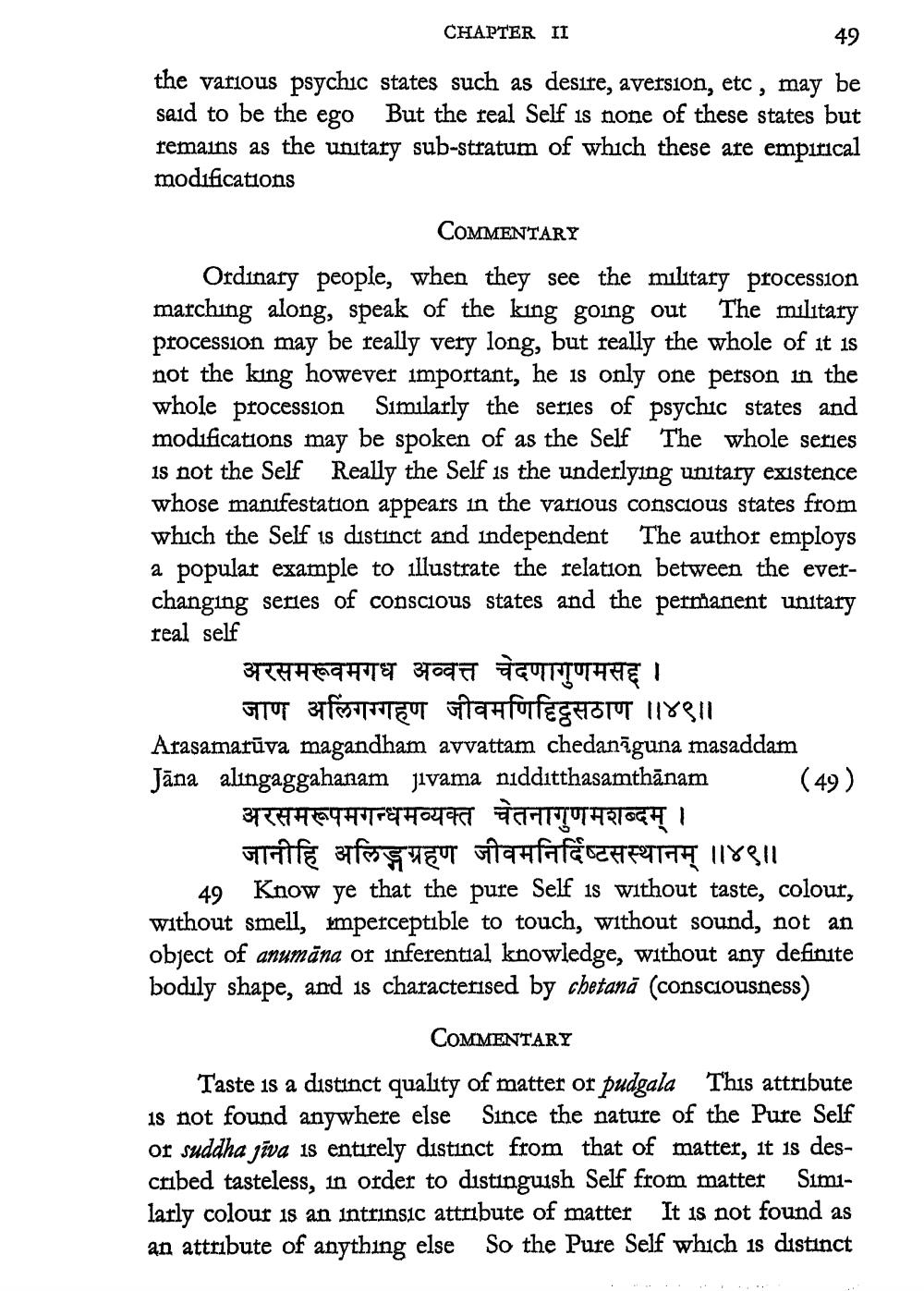________________
49
the various psychic states such as desire, aversion, etc, may be said to be the ego But the real Self is none of these states but remains as the unitary sub-stratum of which these are empirical modifications
CHAPTER II
COMMENTARY
Ordinary people, when they see the military procession marching along, speak of the king going out The military procession may be really very long, but really the whole of it is not the king however important, he is only one person in the whole procession Similarly the series of psychic states and modifications may be spoken of as the Self The whole series is not the Self Really the Self is the underlying unitary existence whose manifestation appears in the various conscious states from which the Self is distinct and independent The author employs a popular example to illustrate the relation between the everchanging series of conscious states and the permanent unitary real self
अरसमरूवमगध अव्वत्त चेदणागुणमसद्द | जाण अलिंगग्गहण जीवमणिट्ठिसठाण || ४९|| Arasamarūva magandham avvattam chedanīguna masaddam Jana alingaggahanam jivama nidditthasamthānam अरसमरूपमगन्धमव्यक्त चेतनागुणमशब्दम् । जानीहि अलिङ्गग्रहण जीवमनिर्दिष्टसस्थानम् ॥४९॥
(49)
49 Know ye that the pure Self is without taste, colour, without smell, imperceptible to touch, without sound, not an object of anumāna or inferential knowledge, without any definite bodily shape, and is characterised by chetana (consciousness)
COMMENTARY
Taste is a distinct quality of matter or pudgala This attribute is not found anywhere else Since the nature of the Pure Self or suddha jiva is entirely distinct from that of matter, it is described tasteless, in order to distinguish Self from matter Sımılarly colour is an intrinsic attribute of matter It is not found as an attribute of anything else So the Pure Self which is distinct




